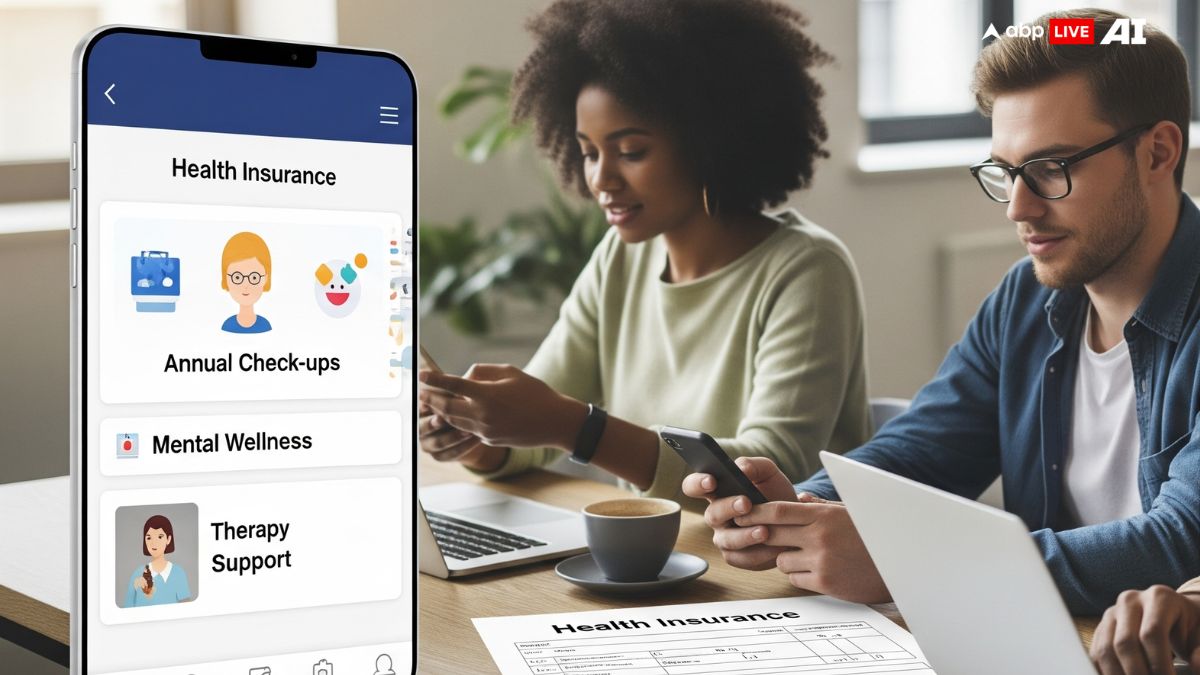Health
Gen Z Redefines Health Insurance with Mobile, Mental Health Focus

Health insurance is undergoing a significant transformation as Gen Z asserts its priorities and preferences in the marketplace. Unlike previous generations, this cohort emphasizes immediate health needs, innovative technology, and a holistic approach to well-being. With a keen focus on affordability, mental health, and preventive care, Gen Z is reshaping the landscape of health insurance.
Mobile-First Expectations
For Gen Z, traditional insurance models that rely heavily on paperwork and in-person consultations are becoming obsolete. More than half of Gen Z consumers in India prefer insurance solutions that are mobile-first and app-based. They expect to find, purchase, and manage their policies entirely through their smartphones. This generation is accustomed to rapid digital transactions, such as ten-minute deliveries and teleconsultations, making it clear that simplicity and speed are not optional but essential.
Emphasis on Mental Health and Affordability
The conversation around health is shifting dramatically. Unlike older generations that focused primarily on chronic physical conditions, Gen Z prioritizes mental health issues, including anxiety and burnout. This shift is reflected in their demand for insurance plans that incorporate mental health support. Many traditional health plans do not cover these essential services, leading to an increased interest in mental health riders or add-ons that are viewed as dealbreakers.
Financial considerations also play a vital role. With rising living costs, including rent and education, affordability is crucial for Gen Z. They are actively searching for low-cost, flexible plans that deliver maximum value. This generation is financially savvy, preferring plans that provide clarity in coverage and flexibility for future adjustments. In contrast, older generations often opt for broader coverage despite higher premiums, reflecting different health needs and financial circumstances.
Preventive care is another area where Gen Z is raising expectations. They prioritize early intervention and value insurance that includes coverage for outpatient visits, annual check-ups, and diagnostics. The traditional model of insurance that pays only for hospitalizations feels outdated to them. Instead, they seek plans that emphasize preventive measures, allowing them to address potential health issues before they become serious.
Gen Z’s approach to selecting insurance policies is also changing. Many are now independently researching and personalizing their plans, often at a younger age than previous generations. This early adoption can lead to lower premiums and fewer underwriting challenges, ultimately providing access to better coverage and modern preventive features.
In summary, Gen Z is driving a significant shift in health insurance, demanding a balance of digital convenience, empathetic support, and meaningful coverage that aligns with their lifestyles. The transformation reflects a broader trend where the health insurance industry must adapt to meet the unique needs and preferences of a new generation. As this shift continues, insurance providers must respond to the evolving expectations or risk losing relevance in a rapidly changing market.
-

 World5 months ago
World5 months agoSBI Announces QIP Floor Price at ₹811.05 Per Share
-

 Lifestyle5 months ago
Lifestyle5 months agoCept Unveils ₹3.1 Crore Urban Mobility Plan for Sustainable Growth
-

 Science4 months ago
Science4 months agoNew Blood Group Discovered in South Indian Woman at Rotary Centre
-

 World5 months ago
World5 months agoTorrential Rains Cause Flash Flooding in New York and New Jersey
-

 Top Stories5 months ago
Top Stories5 months agoKonkani Cultural Organisation to Host Pearl Jubilee in Abu Dhabi
-

 Sports4 months ago
Sports4 months agoBroad Advocates for Bowling Change Ahead of Final Test Against India
-

 Science5 months ago
Science5 months agoNothing Headphone 1 Review: A Bold Contender in Audio Design
-

 Top Stories5 months ago
Top Stories5 months agoAir India Crash Investigation Highlights Boeing Fuel Switch Concerns
-

 Business5 months ago
Business5 months agoIndian Stock Market Rebounds: Sensex and Nifty Rise After Four-Day Decline
-

 Sports4 months ago
Sports4 months agoCristian Totti Retires at 19: Pressure of Fame Takes Toll
-

 Politics5 months ago
Politics5 months agoAbandoned Doberman Finds New Home After Journey to Prague
-

 Top Stories5 months ago
Top Stories5 months agoPatna Bank Manager Abhishek Varun Found Dead in Well









